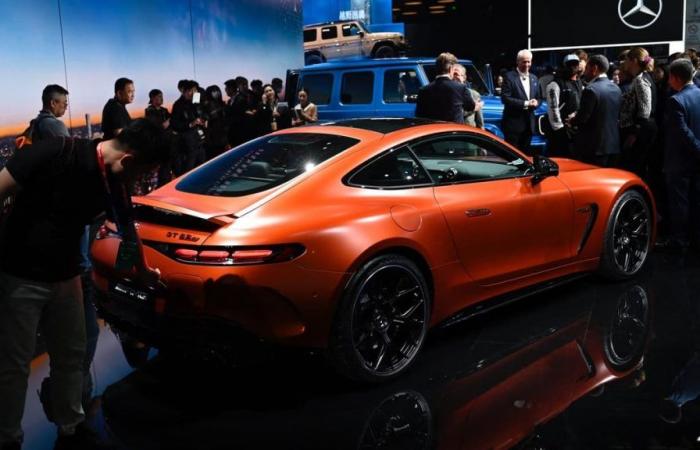China announced Thursday that it “reserves the right” to lodge a complaint with the World Trade Organization (WTO), after the European Union announced surcharges on Chinese electric vehicles.
• Read also: Washington and Beijing must maintain direct and open communication
• Read also: War in Ukraine puts auto industry on hold
• Read also: China’s Xiaomi will invest $10 billion in electric cars
“China reserves the right to file a complaint with the WTO and take all necessary measures to resolutely defend the rights and interests of Chinese companies,” said He Yadong, spokesperson for the Ministry of Commerce, during from a press briefing.
Brussels announced on Wednesday up to 38% additional customs duties on imports of Chinese electric vehicles into the EU, while Beijing is accused of having illegally favored its manufacturers.
Vehicles manufactured in Chinese factories were until now taxed at 10% in the EU.
Brussels plans to add countervailing duties of 17.4% to Chinese manufacturer BYD, 20% to Geely and 38.1% to SAIC, after nearly nine months of investigation.
For other manufacturers, an average duty of 21% should apply. Its amount will differ depending on the levels of public subsidies received.
Brussels will have four months, after the institution of provisional duties, to impose definitive duties, which opens a window for dialogue until November.
“Distortion”
Beijing assured Thursday that such a decision was devoid of any “factual and legal basis”.
“This measure not only harms the legal rights and interests of the Chinese electric vehicle industry (…) but will also create distortion of production and supply chains around the world, including in the European Union” , He Yadong said.
“The actions of the European Union are suspected of violating WTO rules and constitute outright protectionist behavior,” he added.
The EU claims to comply with WTO rules with these taxes which aim to slow down imports of Chinese electric vehicles without completely blocking them, contrary to the policy pursued by Washington.
President Joe Biden announced on May 14 an increase in customs duties on Chinese electric vehicles to 100%, compared to 25% previously, transforming the American market into a fortress where the national champion Tesla reigns supreme.
From Mercedes to Ferrari, Europe is the cradle of prestigious automobile brands.
Champion of gasoline and diesel engines, it nevertheless fears seeing its factories disappear if it fails to stem the announced surge of Chinese models which have a head start in electrics.
By announcing these new taxes, Brussels hopes to protect a sector which employs 14.6 million workers in the EU while avoiding a deadly conflict with its second economic partner behind the United States.
Asked Thursday about the countermeasures that China could adopt in response, the Ministry of Commerce did not give details.
Beijing already announced in January an investigation targeting all wine spirits imported from the European Union, including cognac. Wine, dairy products, pork and large-engine cars are also in the sights, according to the Chinese state press.
China overtook Japan as the top auto exporter last year. It invested very early in batteries, the technological heart of electric vehicles, which it has made its specialty.
In Europe, Chinese brands are growing quickly thanks to competitive prices.
They went from less than 2% of the electric car market at the end of 2021 to almost 8% at the end of 2023, according to the Jato institute, taking advantage of the ban on sales of gasoline and diesel engines decided by the EU. horizon 2035 to fight against global warming.






